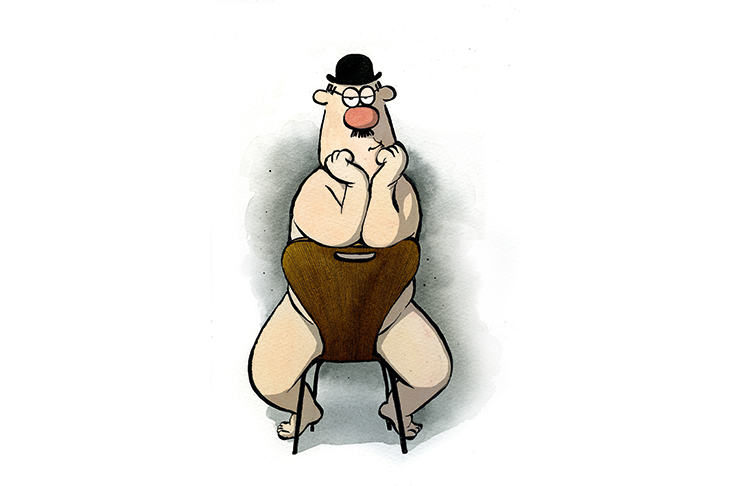To fund the war against Napoleon in 1813, Princess Marianne of Prussia invented an ingenious tax-raising scheme. Wealthy Prussians were called on to hand their jewellery to the state; in exchange they were given iron replacements for the gold items they had donated.
Stamped on the iron replicas were the words ‘Gold gab ich für Eisen’. The phrase has a double meaning, the iron referring to the iron of the replica, but also to the ‘iron’ your donation had bought as armaments. At Prussian balls thereafter, iron jewellery carried more status than gold. Gold merely proved your family was rich; iron proved you were not only rich but patriotic.
Why does no one try such ideas today? As Adam Smith observed, ‘The chief enjoyment of riches consists in the parade of riches’.
Just as the British Legion would raise far less money if it stopped handing out poppies, the DVLA seems to have lost millions when it stopped handing out tax discs. Perhaps, without the bizarrely enjoyable annual rite of unperforating and displaying your tax disc, people feel short-changed? To promote honesty and altruism, it helps to provide some small selfish gain in return.
For years I have advised public health professionals to stop recommending we engage in ‘ten minutes of aerobic exercise, three times a week’. Phrased like that, it sounds deeply boring. ‘Why don’t you encourage people to have more sex instead?’ I asked. After all, it’s aerobic, it lasts ten minutes (if you’re English) and, unlike jogging, ridiculous clothes are optional.
In the same way, why not make it more interesting to pay tax? Some people say we pay too much tax. Others say we pay too little. But the current tax system is flawed for another reason: it is psychologically tone-deaf. There is no attempt to create any compensatory feel-good factor at all.
The Treasury’s hatred of hypothecated taxes is one problem. As every charity knows, people are far happier giving to a specific cause than to an ill-defined one. Economists assume that the pain of writing a cheque depends only on the amount and not the destination. That is nonsense.
For another thing, cutting the tax rate is emotionally wasteful. We soon become accustomed to the new rate of tax and forget about it. More interesting would be to hold the tax rate constant, but to refund tax cuts annually in a lump sum. It would then be valued year after year, rather than becoming invisible.
By rebating people’s taxes annually and simultaneously you can also borrow from Princess Marianne’s playbook. It is hard to get people to volunteer to pay more tax. But it would be far easier to get people to accept a lower tax rebate. A month before the annual rebate was due, we could be invited to donate a proportion to causes of our choice: 50 per cent back to the NHS, for instance. People who gave 50 per cent or 100 per cent could have their names published online.
This would silence those annoying people who constantly drone on about how we should pay more tax while avidly trousering every tax break they can find. If your pinko friends had spent their despised tax break on a holiday to Machu Picchu, you could call them out.
Better still, social pressure, unlike legislation, is sensitive to context. Nobody would begrudge the young, say, or a low-earning family, for keeping their rebate. But anyone with money to spare could reasonably be nudged into contributing more.
The window tax was in some ways the perfect tax. You could avoid it if you needed to, but you couldn’t hide the fact that you had.
Got something to add? Join the discussion and comment below.
Get 10 issues for just $10
Subscribe to The Spectator Australia today for the next 10 magazine issues, plus full online access, for just $10.
You might disagree with half of it, but you’ll enjoy reading all of it. Try your first month for free, then just $2 a week for the remainder of your first year.















Comments
Don't miss out
Join the conversation with other Spectator Australia readers. Subscribe to leave a comment.
SUBSCRIBEAlready a subscriber? Log in